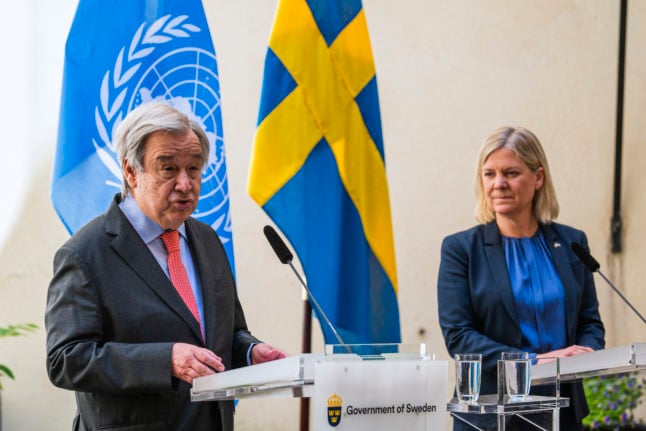Armed opposition groups are also besieging and indiscriminately shelling civilian neighbourhoods, the independent Commission of Inquiry on the human rights situation in Syria said in a report.
"The government employs siege warfare, instrumentalising basic human needs for water, food, shelter and medical care as part of its military strategy," the panel said.
The commission, headed by Brazilian Paulo Sergio Pinheiro, stressed that more than 250,000 people remain besieged in the war-ravaged country and decried a "starvation until submission campaign" by the government.
"The denial of humanitarian aid, food and basic necessities such as medical care and clean water has forced people to choose between surrender and starvation," Pinheiro told reporters in Geneva.
The commission was created three years ago by the UN Human Rights Council to investigate abuses committed in the war, which is estimated to have killed more than 140,000 people.
It will present to the council later this month its latest report covering a litany of war crimes and crimes against humanity carried out by both sides during the six months leading up to January 20th.
The report points to the dire situation in besieged areas of Ghouta, Daraya and Moadamiyet al-Sham outside Damascus, and the old city of Homs.
Deaths from starvation
It also highlights the 20,000 people trapped in the Yarmuk Palestinian refugee camp near the capital with no food or medical supplies.
"People have nothing to eat, having exhausted all their supplies and resorted to eating plant leaves . . . reports of deaths from starvation were received," the report said.
Opposition groups had also laid areas under siege, including the towns of Nubul and Al-Zahraa in Aleppo province, as well as part of the Al-Ghab valley in the central province of Hama, the report said.
In addition to the horrifying effect of the sieges, Pinheiro said the government's indiscriminate use of so-called barrel bombs in places like Aleppo, where hundreds have been killed and maimed by the makeshift explosives, were "among the most devastating events we documented."
In al-Bara in the Idlib governorate last July, for instance, a helicopter dropped three such barrel bombs onto a market and residential areas, and hit a fuel truck, leaving bodies "burned almost beyond recognition."
Pinheiro, who recently visited Syrian refugees in the region, said he vividly recalled a doctor describing his work with barrel bomb victims, "including infants who had lost limbs."
"This conflict has been permanently etched onto the bodies of its victims," he said.
The commission, which includes legendary former war crimes prosecutor Carla del Ponte, also detailed a range of massacres carried out by both sides during the six-month period under review.
And it noted that both sides were increasingly recruiting children to take part in the hostilities, including having them man checkpoints and even fight.
"As a result children have been killed and wounded in combat," Pinheiro said, pointing especially to one case where a school in Aleppo was transformed into a training camp for boys last September.
Murder, torture, rape
In the report, the commission again charged that the government and its allies were guilty of a wide range of "crimes against humanity", including "systematically committing murder, torture, rape and enforced disappearance."
Torture was also rife inside Syrian detention centres, the report said.
One witness described how a detainee had last July begged prison guards to take him to the toilet, only to be beaten to death in front of the other inmates.
The vast array of opposition groups had also committed war crimes, including murder, executions, torture, hostage-taking and rape, as well as targeting medical and religious personnel and journalists, the report found.
Worst hit were civilians in areas controlled by the jihadist Islamic State of Iraq and the Levant in Raqqa province, where they were systematically subjected to "severe physical or mental pain or suffering" which amounted to crimes against humanity.
The commission has never gained access to Syria, relying on more than 2,600 interviews in the region and from Geneva for its findings.
It has drawn up a confidential list of people and groups it believes should be held accountable.
Pinheiro stressed that the commission has repeatedly called for a blocked UN Security Council to refer the issue to the International Criminal Court, to no avail.
"The Security Council bears responsibility for not addressing accountability and allowing the warring parties to violate these rules with total impunity," he said.


 Please whitelist us to continue reading.
Please whitelist us to continue reading.
Member comments